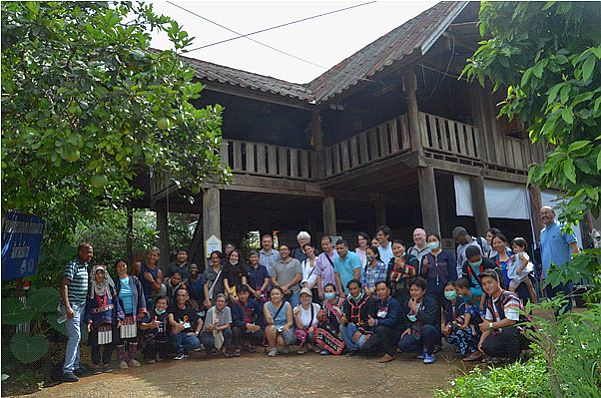Date/Time
Date(s) - 29/05/2022 - 04/06/2022
All Day
Categories No Categories
The consortium held their fourth project meeting in Chiang Mai, Thailand, hosted by Raks Thai, between the 29th May and 4th June. The meeting kicked off with a fieldtrip to Pa-Kia Village, 2 hours north of Chiang Mai. The fieldtrip included a community meeting, and an opportunity to hold smaller break out groups with community members who had been affected in different ways by international migration. These interactions provided a valuable opportunity for the consortium to learn from the Thai experience of overseas labour migration, and identify learnings and comparative perspectives for the respective countries they are working in. Migration from the community to South Korea and Taiwan was particularly widespread, with other destinations including Israel and Australia. The break out focus groups offered valuable insights into livelihood change, including community forest management, the shift towards cash crop production, and the impact of migration itself. The community interaction identified a number of themes relevant for other AGRUMIG sites – including the important facilitating role of migration agents and social network, divergent trajectories of return migration, and the productive use of remittances to invest on the land, particularly for low labour high return investments such as agroforestry.

Following the return to Chiang Mai, the meeting was focussed on sharing and discussing findings for WP2 (on migration drivers and impacts) and WP3 (migration governance). This was the first time the teams had met in person since the completion of fieldwork, and thus the session was extremely valuable as we synthesise key learnings for comparison and policy lessons. The capacity of the teams to overcome the odds and finish the data collection in spite of the pandemic related barriers has been particularly impressive. A session led by University of Bologna was also scheduled with the purpose of identifying a set of migration impact indicators across our field sites.
The latter part of the meeting was oriented to WP4 (policy engagement) and WP5 (impact). Country teams finalised their plans for policy outreach and action planning with the multi-stakeholder working groups in each country, and a robust and workable publication plan was developed, with writing teams now finalised. The project meeting was followed by two days focussed on the Qualitative Comparative Analysis – whereby we considered the impact of the pandemic of the earlier staged comparative analysis process, and came up with a revised timeline and more focussed research theme to pursued as part of the comparative work in the months ahead.





